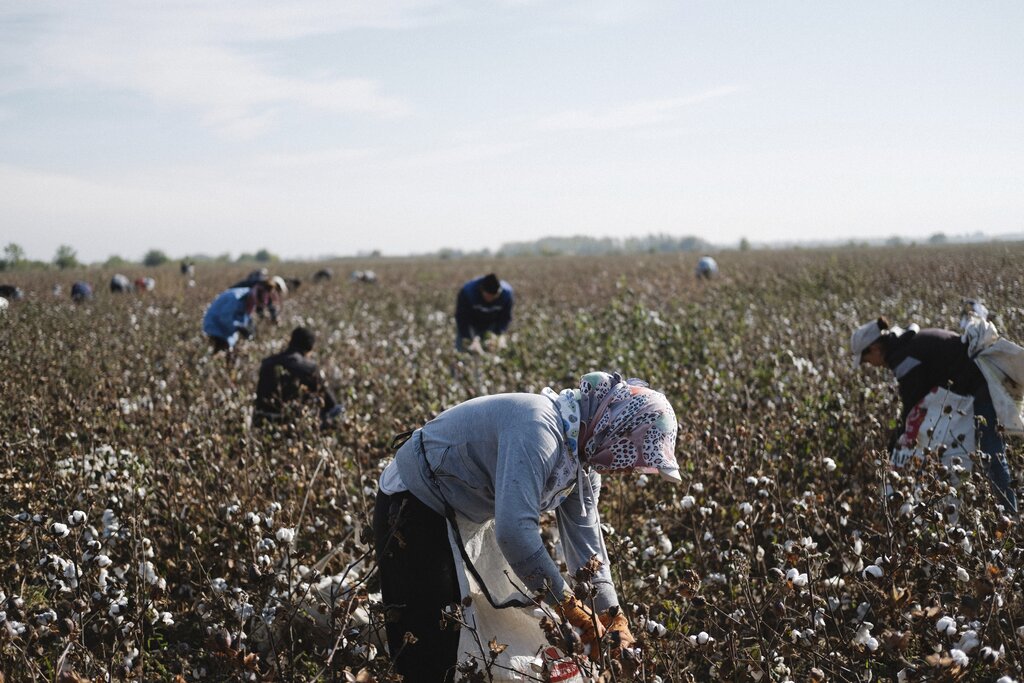Sanctions Loophole: Russia Buys Cotton Fiber for Ammunition Production

Russia is circumventing sanctions by importing cotton fiber from Uzbekistan for military production instead of cellulose, the supply of which is subject to sanctions.
The Gaze reports on it, referring to Radio Azattyk.
Russia has built a new channel to bypass sanctions by establishing large-scale supplies of cotton fiber from Uzbekistan, which, after additional processing, is used to produce gunpowder and solid rocket fuel.
After the start of the full-scale invasion of Ukraine, the volume of hidden trade in such raw materials has increased significantly, despite the EU ban on the export of cotton cellulose for military purposes.
Cotton fiber differs from finished cellulose in that it is a primary product that still contains natural fats, wax, lignin, and proteins. However, after purification and chemical treatment with acids, it is easy to obtain nitrocellulose from it — a key component for explosives, rockets, and gunpowder.
It is this “gray area” that allows Russian gunpowder factories to purchase goods under a different code, formally without violating sanctions.
One of the main figures in the scheme is businessman Rustam Muminov, owner of the Fergana Chemical Plant and a citizen of Uzbekistan, Russia, and the United Kingdom. After 2022, he will control up to 85% of Uzbek supplies to Russia. It is his companies, Mercury Renaissance and the Fergana Chemical Plant, that have been hit by EU and Ukrainian sanctions.
While in 2019 the Kazan Powder Plant purchased only 48 tons of cellulose from Uzbekistan, in 2022–early 2023 it purchased 1,225 tons worth $2.1 million.
However, after the EU tightened controls on cellulose exports, the schemes changed: from the second half of 2024, Uzbekistan began to register supplies much more often as “cotton fiber” under a different customs code. In 2024 alone, such supplies to Russia amounted to almost $9.8 million.
Experts from the Economic Security Council of Ukraine note that supplies have not actually decreased — only their documentation has changed.
“We understand that Russia is circumventing sanctions and importing cotton fiber instead of cellulose under a different customs code,” said Denis Gutik, director of the Economic Security Council. “This shows how important this product is for the Russian military industry, and although it requires time and money, ways to import it can always be found in the future.”
At the same time, Moscow is using other workarounds: in addition to Central Asia, sanctioned goods are being delivered through countries such as Kazakhstan, Kyrgyzstan.
In addition, Russia is increasingly importing dual-use microchips and electronic components from China to avoid sanctions.
As The Gaze reported earlier, China has emerged as a crucial supplier of dual-use goods that directly sustain Moscow’s war machine.
Read more on The Gaze: Currency Operations for Sanctions Evasion: How the Yuan and Dirham Save the Kremlin and Why This Weakness Can Be Blocked